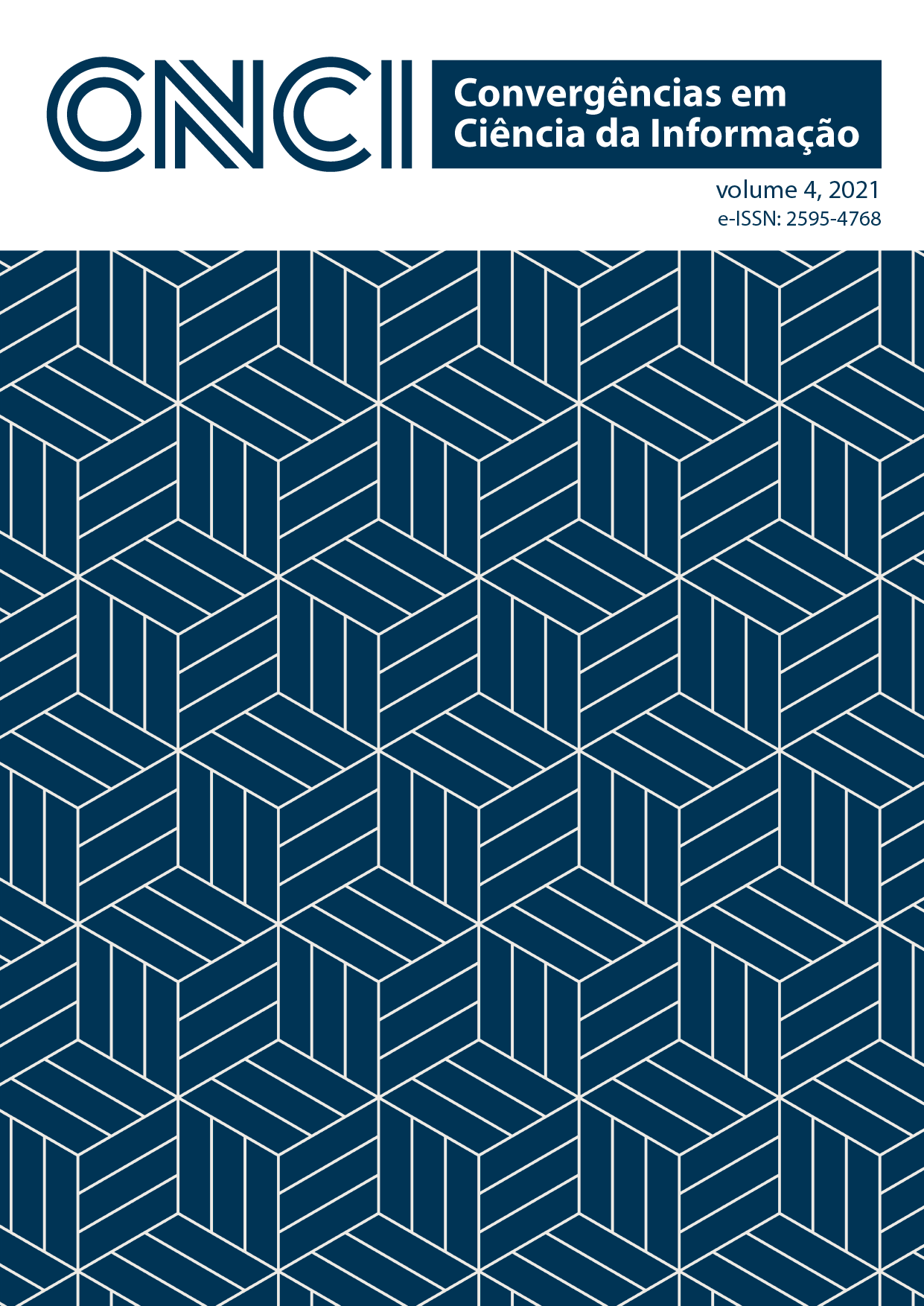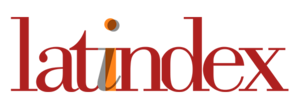The semantic relationships of the scientific communication process and the importance of popularizing of science for non-formal education
DOI:
https://doi.org/10.33467/conci.v4i.16477Keywords:
Non-Formal Education Popularization of Science. Scientific Communication. Scientific Education. Semantic Relations.Abstract
Directly linked to the non-formal education process, this paper aims to relate scientific communication with the various related terms, such as culture, dissemination, divulgation, literacy, popularization and vulgarization of science (or scientific), taking into account its singularities and semantic relationships. However, it is not intended to standardize terms or give them a final definition – given the range of expressions used for the most varied purposes – but rather to understand the relationship and symbolism between these with the public and with scientific education. In addition, to verify the relevance of the scientific communication process in Brazilian postgraduate studies, a search was carried out in the Brazilian Digital Library of Theses and Dissertations (BDTD) of the Brazilian Institute of Information in Science and Technology (IBICT) in order to identify the presence of each of the terms presented. Due to the fact that this theme is directly related to scientific education, the importance of the role played by scientific communication is understood, in particular the popularization of science, within the educational aspect, more precisely in relation to non-formal education.
Downloads
References
ALMEIDA, M. A vulgarização do saber. In: MASSARANI, L.; MOREIRA, I. C.; BRITO, F. (orgs.). Ciência e Público: caminhos da divulgação científica no Brasil. Rio de Janeiro, Casa da Ciência. UFRJ, 2002.
BRASIL. Semana Nacional de Ciência e Tecnologia, 2021. Disponível em http://semanact.mct.gov.br/index.php/content/view/2320.html. Último acesso em 15 de março de 2021.
BUENO, W. C. Jornalismo científico no Brasil: os compromissos de uma prática dependente. 1984. Tese (Doutorado) – Escola de Comunicação e Artes, Universidade de São Paulo, São Paulo, 1984.
BUENO, W. C. Jornalismo Científico, Lobby e Poder. In: DUARTE, J.; BARROS, A. T. (Org.). Comunicação para Ciência, Ciência para comunicação. 1. ed. Brasília: Embrapa Informação Tecnológica, 2005.
BURNS, T. W.; O’CONNOR, D. J.; STOCKLMAYER, S. M. Science communication: a contemporary definition. Public Understanding of Science, v. 12, 2003.
CARIBÉ, R. C. V. Comunicação científica para o público leigo no Brasil. 319 f. 2011. Tese (Doutorado em Ciência da Informação) – Faculdade de Ciência da Informação, UNB, 2011.
CAZELLI, S.; QUEIROZ, G.; ALVES, F.; FALCÃO, D.; VALENTE, M. E.; GOUVÊA, G.; COLINVAUX, D. Tendências pedagógicas das exposições de um museu de Ciência. In: ENCONTRO NACIONAL DE PESQUISA EM EDUCAÇÃO EM CIÊNCIAS - ENPEC, 2., 1999, Valinhos - São Paulo. Anais [...] CD-ROM do II ENPEC, 1999.
CHASSOT, A. Alfabetização científica: questões e desafios para a educação. Ijuí: Ed. Unijuí, 2006.
ESTEVES, B.; MASSARANI, L.; MOREIRA, I. C. Ciência para Todos e a divulgação científica na imprensa brasileira entre 1948 e 1953. Revista da Sociedade Brasileira de História da Ciência, Rio de Janeiro, v. 4, n. 1, p. 62-85, 2006.
FALK, J.; DIERKING, L. D. Learning from Museums: Visitor Experiences and the Making of Meaning. Altamira Press, New York, 2000.
GERMANO, M. G.; KULESZA, W.A. Popularização da Ciência: uma revisão conceitual. Cad. Bras. Ens. Fís., v. 24, n. 1, p. 7-25, abr. 2007.
LOUREIRO, J. M. M. Museu de Ciência, Divulgação Científica e Hegemonia. Ciência da Informação, Brasília, v. 32, n. 1, jan./abr., 2003.
MARANDINO, M. Perspectivas da pesquisa educacional em museus de Ciência. In: SANTOS, F. M. T.; GRECA, I. M. (org.). A pesquisa em ensino de Ciências no Brasil e suas metodologias. Ijuí: Ed. Unijuí, 2007.
MASSARANI, L.; TURNEY, J.; MOREIRA, I.C. Terra Incógnita: A Interface entre Ciência e Público. Vieira & Lent Casa Editorial: Rio de Janeiro, 2005.
MORAES, R. Incursões no discurso da Ciência: a popularização da Ciência nos espaços dos museus. Revista Virtual de Gestão de Iniciativas Sociais, v. 1, Ed.Esp., mar. 2009.
MOREIRA, I. C. Brasil, Olhe para a Ciência! A Semana Nacional de Ciência e Tecnologia em três anos de existência. In: REUNIÓN DE LA RED DE POPULARIZACIÓN DE LA CIENCIA Y LA TECNOLOGÍA EN AMÉRICA LATINA Y EL CARIBE, 10., 2007, San José. Anais […] (RED POP - UNESCO) y IV Taller “Ciencia, Comunicación y Sociedad”. San José, 2007.
NUNES, M. S. C.; VELOSO, R. M. P.; FERNANDES JÚNIOR, P. R.; SANTOS, M. G. A popularização da ciência e a disseminação da
informação científica. ConCI: Conv. Ciênc. Inform., v. 2, n. 3, p. 171-198, set./dez. 2019.
OLIVEIRA, F. Comunicação pública e cultura científica. Parcerias Estratégicas, Brasília, Ministério da Ciência e Tecnologia, Centro de Estudos Estratégicos, n. 13, dez., 2001.
RAZUCK, F. B.; RAZUCK, R. C. S. R. Movimento Ciência, Tecnologia e Sociedade (CTS) Sob a perspectiva da mobilização popular. Eccos Revista Científica, v. 12, p. 207-217, 2010.
RAZUCK, F. B.; RAZUCK, R. C. S. R. Conhecimentos produzidos acerca da comunicação científica em Bakhtin: uma incursão nas dissertações e teses brasileiras. Revista Práxis, v. 10, p. 103-115, 2018.
RAZUCK, F. B.; RAZUCK, R. C. S. R. Seriam as Exposições da Semana Nacional de Ciência e Tecnologia Museológicas? Latin American Journal of Development, Curitiba, v. 2, n. 5, p. 177-185, sep./oct. 2020.
RAZUCK, F. B.; SANTOS, W. L. P. A Popularização da Ciência na Semana Nacional de Ciência e Tecnologia: um estudo de caso, sob o enfoque CTS, da participação de uma instituição de pesquisa. Ensenanza de Las Ciencias , v. Extra, p. 1537-1542, 2017.
SAAD, F. D. Centros de Ciências: As atuais vitrinas do mundo da difusão científica. In: CRESTANA, S.; CASTRO, M. G.; PEREIRA, G. R. M. Centros e Museu de Ciência, Visões e experiências. São Paulo: Editora Saraiva, 1998. p. 21-25.
SANTOS, W. L. P. Educação Científica e Tecnológica: Desafios e Perspectivas. Revista Virtual de Gestão de Iniciativas Sociais, v. Ed.Esp, mar. 2009.
SHAMOS, M. The myth of scientific literacy. New Brunswick: Rutgers University Press, 1995.
SHEN, B. S. P. Science literacy. American Scientist, v. 63, p. 265-268,1975.
SILVA, M. R. Popularização do Conhecimento Científico: estudo de Caso no Museu de Anatomia Humana da Universidade de Brasília. 2004. Dissertação (Mestrado) – Universidade de Brasília, Brasília, 2004.
SOARES, M. Letramento: um tema em três gêneros. Belo Horizonte: Autêntica, 1998.
TREVISAN, R. H.; LATTARI, C. J. B. Didática no Ensino de Astronomia: medindo a inclinação do eixo da Terra. In: ENCONTRO NACIONAL DE PESQUISADORES EM ENSINO DE CIÊNCIAS, 1., 1997, Águas de Lindóia. Atas [...]. Porto Alegre: Instituto de Física / UFRGS, 1997. p. 651-651.
VALÉRIO, M.; BAZZO, W. A. O papel da divulgação científica em nossa sociedade de risco: em prol de uma nova ordem de relações entre Ciência, tecnologia e sociedad. Revista Iberoamericana de Ciência, Tecnologia, Sociedad e Innovatción, n. 7, set./dez. 2006.
VERGARA, M. R. Context and Concepts: history of science and vulgarização científica in Brazil 19 th century. Interciencia (Caracas), v. 33, p. 324-330, 2008.
VOGT, C. A espiral da cultura científica. Com Ciência – Cultura Científica, 2003. Disponível em: http://www.comciencia.br/reportagens/cultura/cultura01.shtml. Acesso em: 25 ago. 2020.
ZIMMERMANN, E.; MAMEDE, M. A. Novas direções para o Letramento Científico: Pensando o Museu de Ciência e Tecnologia da Universidade de Brasília. In: REUNIÓN DE LA RED – POP, 9., 2005, Rio de Janeiro. Anais […] Brasília: RED-POP, 2005. v. 01. p. 23-38.
Published
How to Cite
Issue
Section
License
ConCI adopts the CC BY 4.0 License  , where licensees have the right to copy, distribute, display and perform the work and make derivative works from it, provided that due credit is given to the author or licensor.
, where licensees have the right to copy, distribute, display and perform the work and make derivative works from it, provided that due credit is given to the author or licensor.
ConCI considers that the author holds the copyright on his/her production, but the author must agree to grant the journal the right to the first publication. In addition, the author must agree that:
• in any publications in institutional repositories, book chapters or other productions resulting from works published in ConCI, due credit must be given to the initial publication.
• are authorized to publish and distribute their work online (eg, in institutional repositories or on their personal page) at any time before or during the editorial process, as this can generate productive changes as well as increase the impact and citation of the work published by ConCI.














 Licenciada por
Licenciada por 